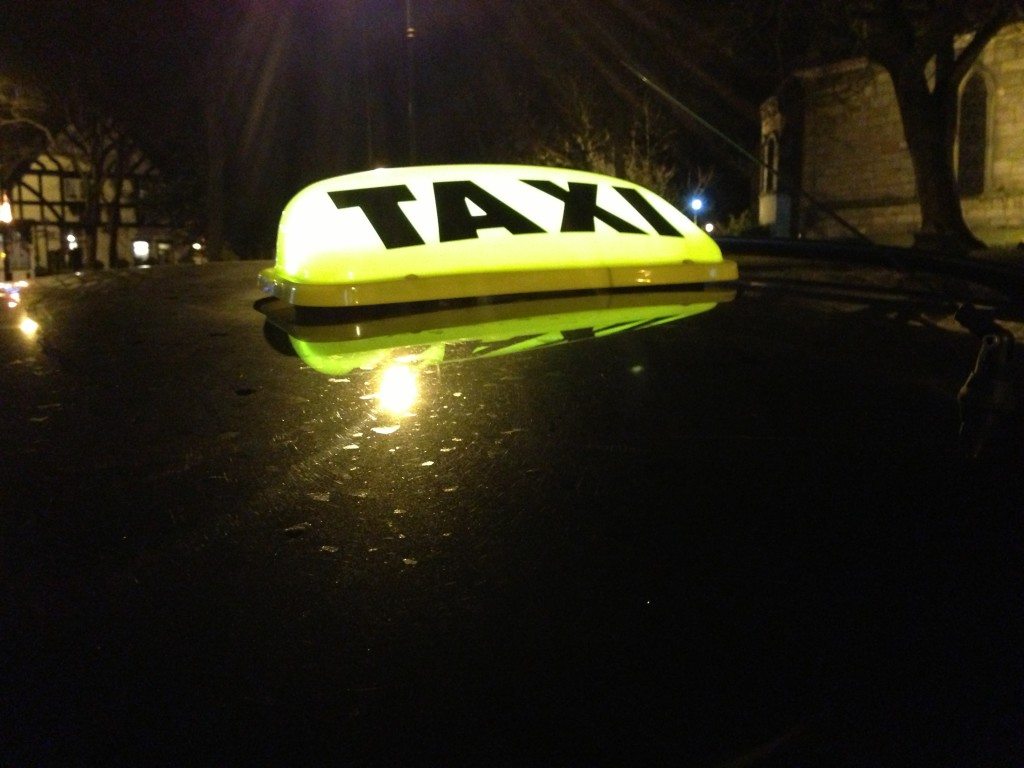Some things are just better than others and no amount of talking will change that. Uber provides a ride experience that is better than a traditional taxi from beginning to end in almost every conceivable way. Rather than figuring out what attracts customers to ridesharing rivals and competing head-to-head, though, the taxi industry has mounted a media campaign to try and tarnish the reputation of the ridesharing services and sway public opinion.
Fear mongering is a poor business model. I wrote a post about how the taxi industry should actually innovate and compete rather than just talking trash:
Trash talking doesn’t win games.
No matter how good Richard Sherman is at talking trash all that matters at the end of the day is performance. Did he put his skills to use and did his team score more points than the opponent? No matter how much verbal venom Kevin Garnett unloads on opponents trash talk alone doesn’t put points on the board. Winning requires actual skill and execution.
Exposing Weakness
The same thing is true in the ongoing war between the taxi industry and ridesharing services like Uber and Lyft. If the best you can do to fight your competition is to try and prevent them from doing business at all and sway public opinion through a contrived media campaign you’ve already lost. Talking trash about ridesharing won’t make the concept go away. You have to actually perform and execute better—offer an equal or better experience at a reasonable cost.
Trying to sway politicians and public opinion just exposes the fact that the taxi industry can’t compete. It has been out-innovated and the only defense it has is to try and bash the competition.
I’ve defended the ridesharing services out of principle but had no firsthand experience using one until recently. I live in greater Houston and work from home so the opportunities for me to hire a taxi or summon an Uber ride are few and far between. When I traveled to San Francisco for the RSA SecurityConference earlier this year, though, I used Uber and the experience was magical. Seriously.
I opened the app and summoned an Uber car and immediately had a description of the driver’s vehicle and a photo of the driver along with an ETA. I could watch on the map and see exactly where the vehicle was and when it would arrive at my location. I was able to view the route to my destination and monitor the trip from beginning to end. My payment information and tipping preferences are already stored in the app and handled automatically so when we arrived at my destination I just got out of the car and went into the hotel.
You can read the full post at Forbes: Taxi Industry Should Focus On Strengths Rather Than Exposing Its Weakness.
- Algorithms, Thought Leadership, and the Future of Digital Influence - December 31, 2025
- The Accessories You Need for Your New Gadgets After the Holidays - December 29, 2025
- Shadow AI, Cybersecurity, and the Evolving Threat Landscape - December 28, 2025




All these things you are talking about Uber are good, but there are Laws of Jurisdictions which must be followed to set up a good business practices.
If the local Govts are slow in getting these laws followed by Uber, taxi drivers are not going to sit around and have some rich tech company take their bread and butter away from them while they wait.
Uber is unethical technological platform, which does not want to obey and follow laws.
Laws must be followed like any other Transportation business along with proper insurances required and enforced by local bylaws.
Taxi Drivers pay 10 times more premium on commercial insurance for the safety of passengers and as per required by local Govts, so why would not these Taxi Drivers retaliate.
Laws are made to be followed by everyone and must be.